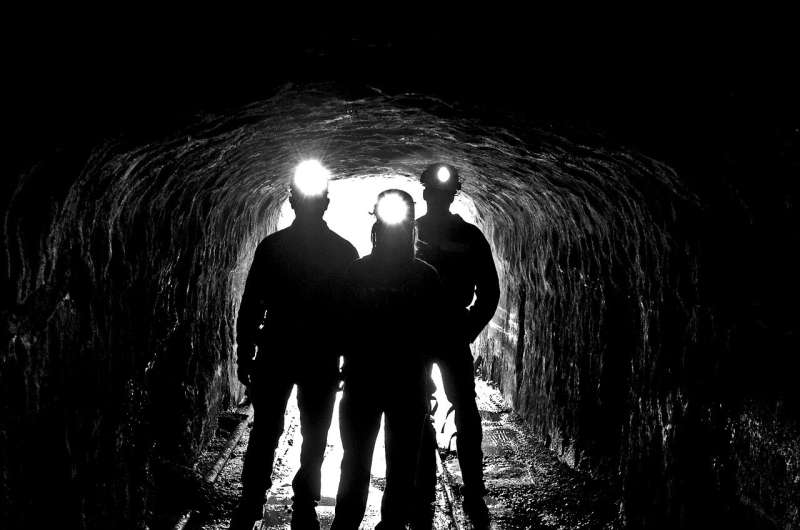Limiting the impacts of technology materials for the low carbon transition

A team of researchers from the University of Exeter, Minviro, the British Geological Survey, and the Circular Economy Solutions Unit has shown the benefits of utilizing a Life Cycle Assessment (LCA) in the quest to enhance 'green' mining techniques.
LCAs are used to assess the environmental impacts associated with the life-cycle of commercial products, from extracting the raw materials to the use and, ultimately, their disposal.
With the growing demand for a transition to renewable energy sources, the need to source sustainable, environmentally friendly raw materials and technology metals has risen.
As a result, the quest to source and unearth rare earth minerals, lithium, colbalt and graphite, amongst others, for electric car batteries, turbines and solar panels—with minimal impact on the natural environment—has magnified.
In the new scientific review, published in Nature Reviews Earth & Environment, the research team outline how an LCA that integrates considerations around the geology, mineralogy and 'geometallurgy' can help identify potential 'hot-spots' before new extraction operations are begun.
This new approach will allow geologists to help select potential exploration targets that naturally lend themselves to lower environmental impacts—resulting in finding the best metal deposits with the lowest potential natural disturbance.
Professor Frances Wall, from the University of Exeter's Camborne School of Mines said, "There is a huge opportunity for countries to use their natural mineral resources to help decarbonisation but it is important that this is done in the right way so that it produces sustainable development and not disaster."
Robert Pell, from Minviro and University of Exeter, and lead author on the paper added: "Writing this review was an excellent opportunity to bring together results of recent academic research and the experience from our Minviro consultancy business."
Dr. Xiaoyu Yan of the Environment and Sustainability Institute at the University of Exeter said, "Understanding the environmental impacts of emerging technologies over their entire life cycle, particularly the raw materials supply stage in the case of clean energy technologies, is key to ensure that they are truly sustainable."
More information: Robert Pell et al, Towards sustainable extraction of technology materials through integrated approaches, Nature Reviews Earth & Environment (2021). DOI: 10.1038/s43017-021-00211-6
Provided by University of Exeter



















